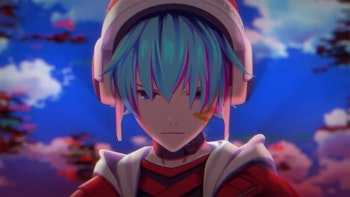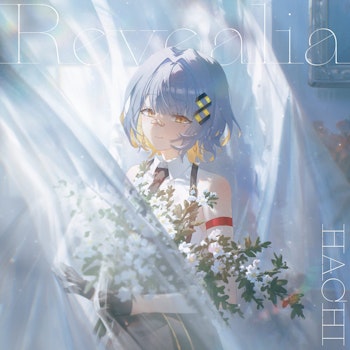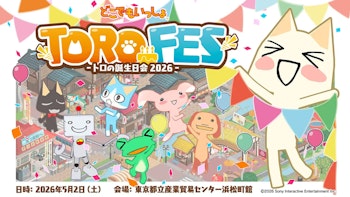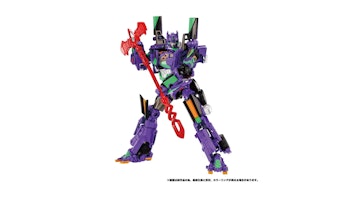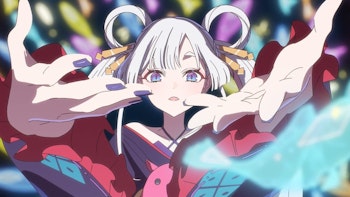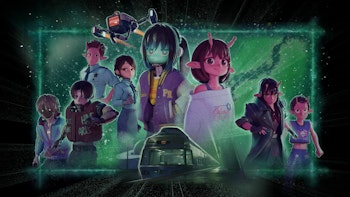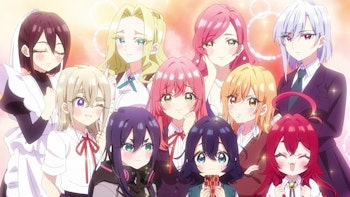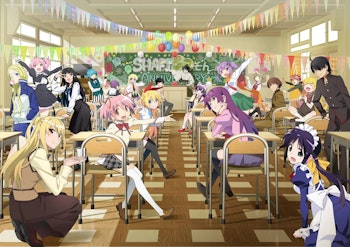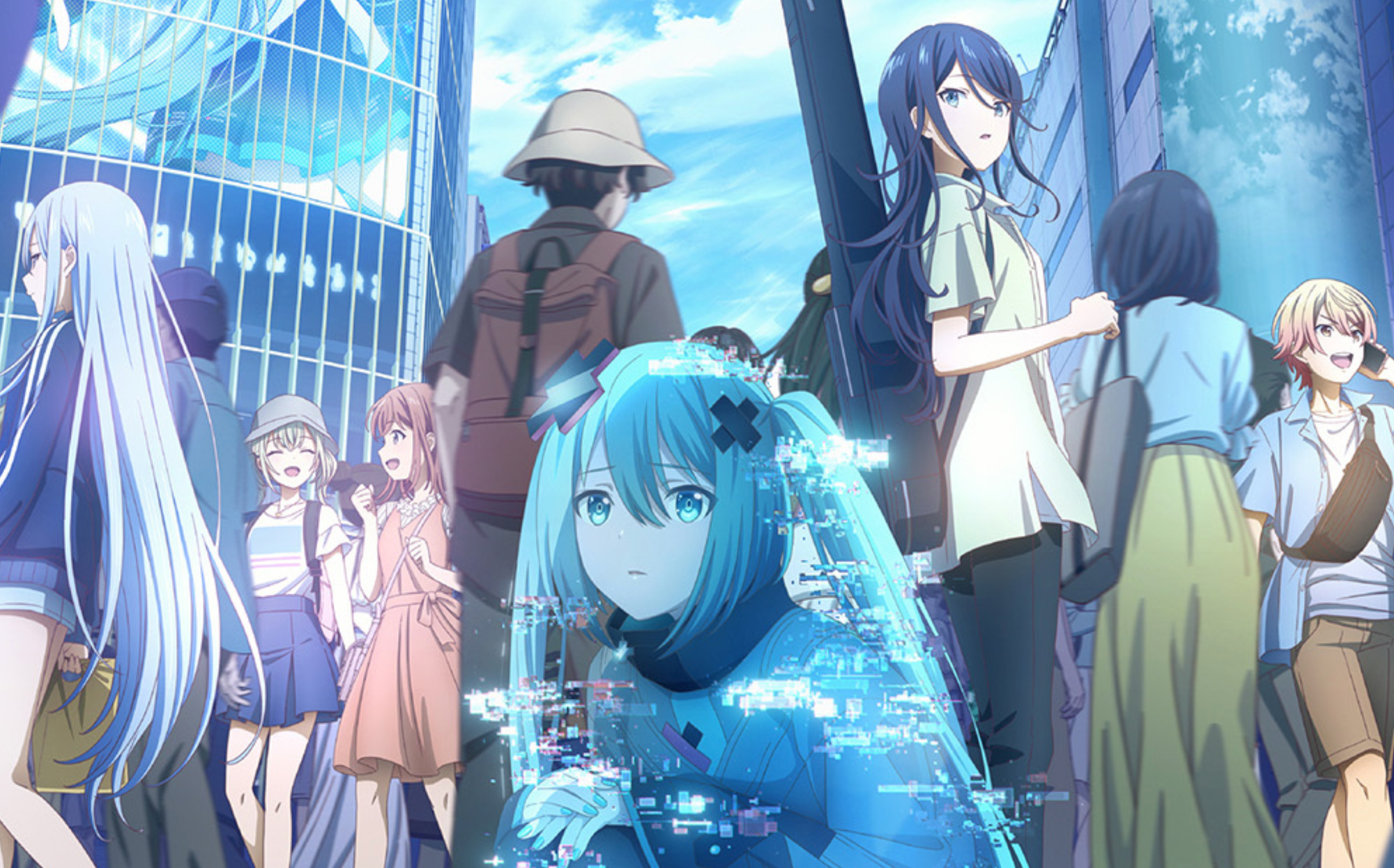
To summarize Colorful Stage! The Movie: A Miku Who Can't Sing, an original film based on the Project Sekai: Colorful Stage mobile game itself derived from the world of Vocaloid, it’s disappointingly plain. For a game that is such a worldwide success, and a music software popular enough to have its own concerts and be considered a genre in itself, it's safe, unable or unwilling to look beyond the game's superfans or play within this story's musical world transformed in Hatsune Miku's image. Her Sekai.
Miku was never supposed to become the phenomenon she is today. At first, she was merely a synthetic voice based on the voice of Sakiko Fujita that could be tuned by artists during the music creation process in place of a real singer to aid in the writing process. She wasn’t even the first such voice developed by Crypton Future Media, the creator of Vocaloid. Yet everything from her twintail anime design to her unique sound inspired people to not only create using her voice, but to write music specifically designed to compliment her unusual robotic tones.
The results spawned a subculture on the video feeds of Nico Nico Douga and in forums, an early example of the internet as viral music tastemaker. Miku was no longer a face, she had a community-constructed personality and fandom as an artist, not a computer program. What came next is a well-known story.
In-person live concerts around the world to thousands of fans, an almost two decade-strong online phenomenon of creators like Deco*27, inabakumori and Mitchie M making a career off of a musical style that has become a genre in itself, figures and collaborations with the likes of Pokémon and so much more. Some of these creators, whether they are music producers and singers in their own right like Kenshi Yonezu or covering Vocaloid songs as an utaite like Ado, now stand at the forefront of the Japanese music industry at least partially transformed in Miku’s image and her internet-driven musical world.
Project Sekai launched in Japan in 2020 to capitalize on the success of mobile rhythm games such as Love Live! and Bang Dream, while keeping spiritually in line with the Vocaloid project’s evolution over time. Rather than following the Vocaloids as the main characters, the world of Project Sekai follows five musical groups performing across different genres. Vocaloid here are virtual singers with some renown, but also exist in the Sekai of creatively-minded people. These Sekai can best be classified as the inner creative world and deep-rooted feelings of people made manifest, a place they can visit and meet their own inner Vocaloid that can guide them on their journey to discover their creative spark and understand themselves.
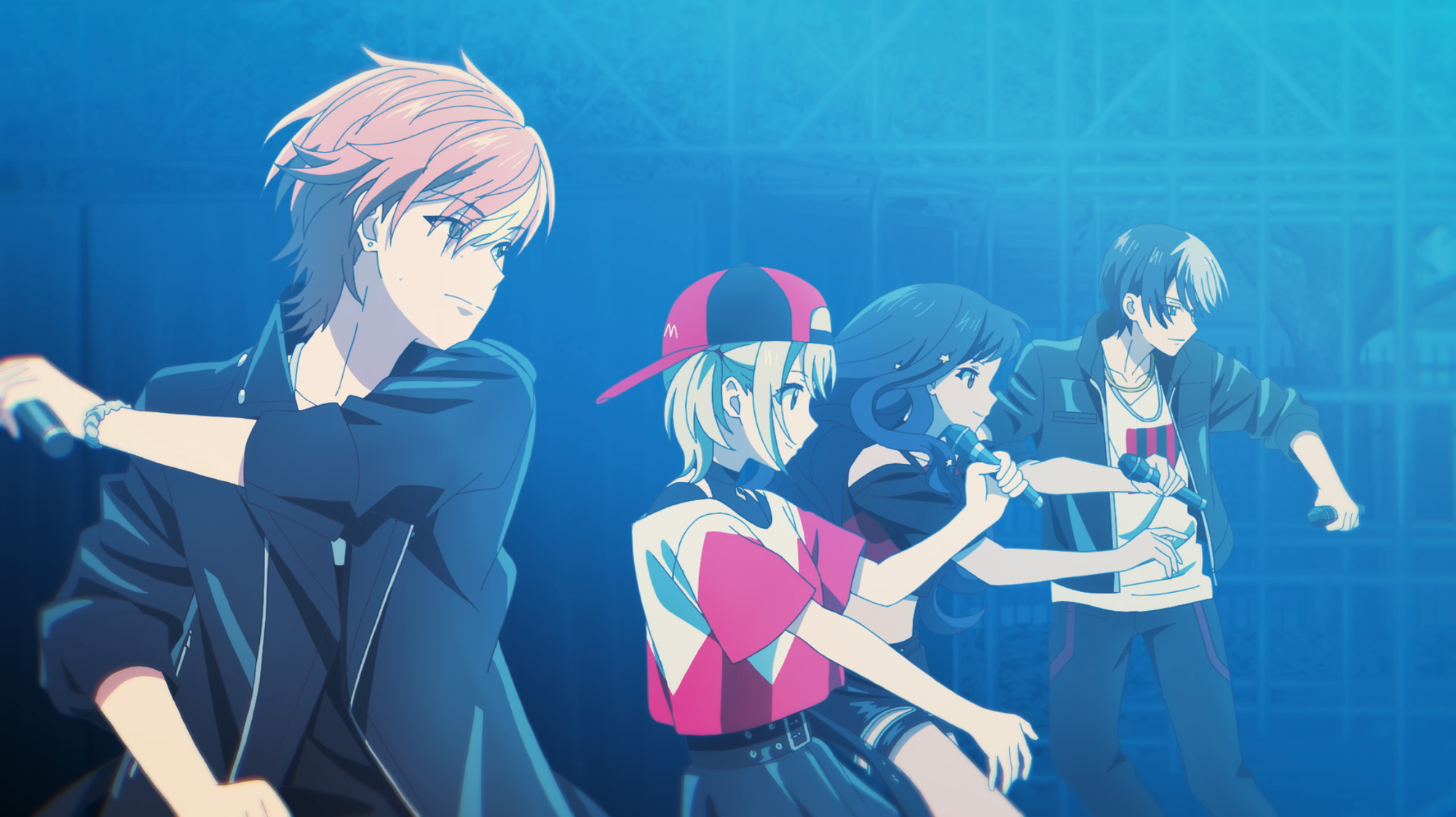
As a metaphor for how Vocaloid and the voice and tools it offers has helped people find community, create music, and in some cases inspire the drive to move forwards as seen with the characters of the in-universe music groups like Nightcord at 25:00, Leo/need, and Vivid BAD SQUAD, it’s a fitting story. Indeed, even if people first made their way to Project Sekai for the Vocaloid characters they were familiar with, they will likely come away loving these characters that each embody their own genres from rap to pop to rock and beyond, rather than stubbornly sticking to the world of Vocaloid songs they’re familiar with.
This may seem a long-winded introduction, but it’s necessary for anyone less familiar with Project Sekai to understand a film that demands intimate familiarity with these characters, their stories, alongside the insecurities and drive that bring them together to create music. Screenings for the film have even leaned into this expected familiarity and love for these characters, opening and closing the film with messages from the characters and ‘live’ post-credits full-song music performances fans are free to wave their penlights and cheer for.
Which is to say, don’t expect the film to surprise you with how it handles its story, nor to expect it to cater to Vocaloid fans less familiar with Project Sekai who will inevitably be intrigued seeing their favorite Vocaloids in their first film. This will not bring them up to speed. Similarly, don’t expect it to take any chances in challenging what story is possible within the world of Project Sekai.
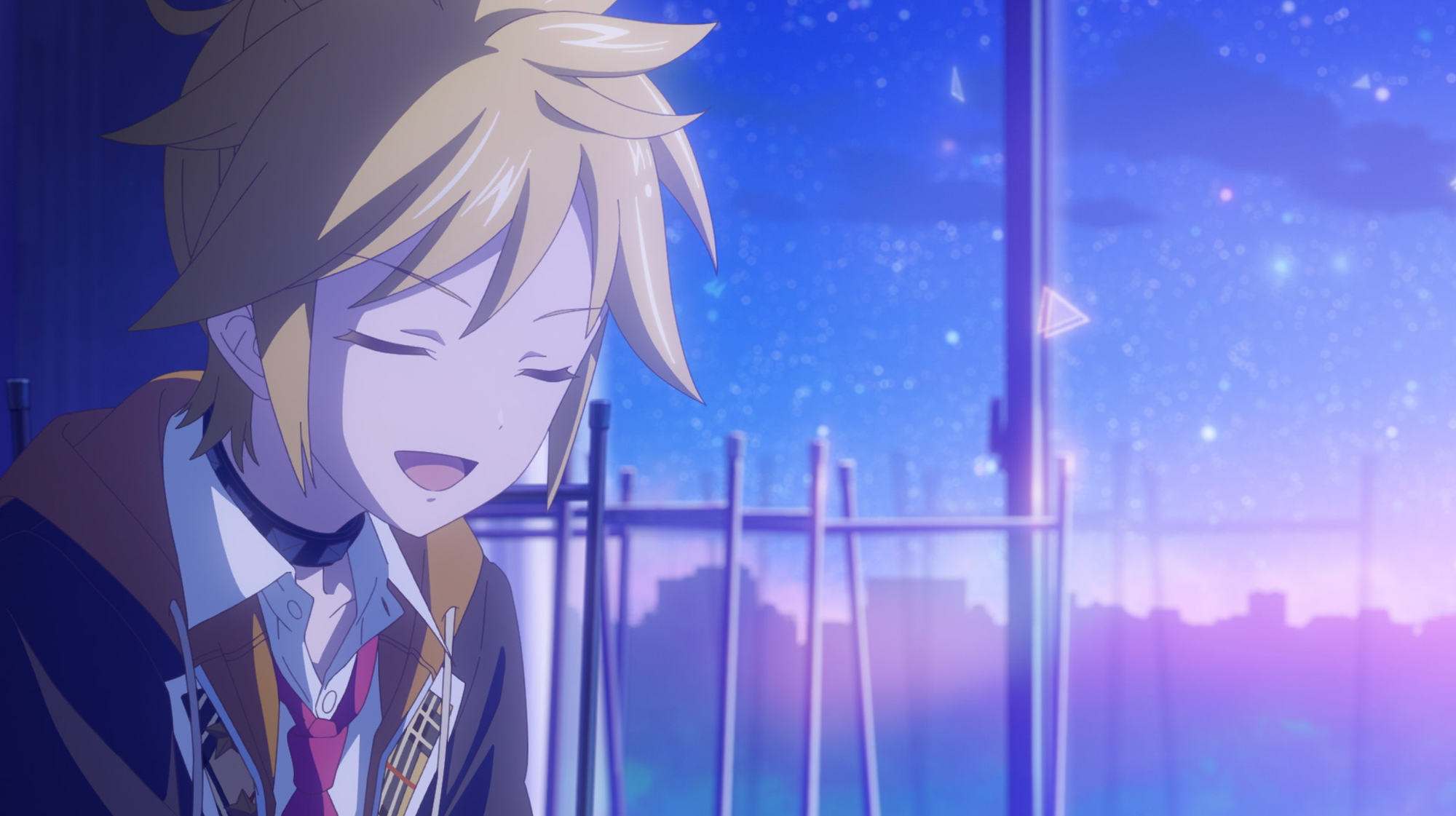
With all the groups at this point established as musicians with their own Sekai and good friends with Hatsune Miku and co., each of these characters are suddenly visited by a new, unfamiliar Miku. For this version of Miku, in her world, her song is not reaching the hearts of those seeking creative liberation, and it’s causing the Sekai she resides within to collapse. In reaching out to these characters its a last hope to save creativity, an attempt to learn and understand how their music connects to the hearts of others so she can save those who need her most.
The rest of the movie plays out to an almost-telegraphic extent, to the point even its third-act twist and conclusion are easy to predict before even stepping into a cinema. Of course they perform for Miku and try to help her, of course Miku struggles as the darkness at the core of her uninspired Sekai infects the people she went to for guidance. Of course they resolve to fight by creating a new song from the heart to reach the Miku Who Can't Sing and give her the final push she needs.
All of which is to say, the story is predictable to the point of boredom, and this is by design. To please fans of the 20+ main-game characters, and the Vocaloid, and ensure each has their moment of screen time, there's no flexibility to try something new. Nor is it desired. Attempting to contradict the game or add a new wrinkle to complicate these characters could alienate or confuse, leaving the film devoid of drive as characters aren't allowed to develop over the course of the film.
The music is strong, a great mix of familiar and specially-created Vocaloid songs played in the background and original songs by Deco*27, sasakure.UK, TeddyLoid, and others. It's genuinely great to see the community that brought Vocaloid to this point uplifted and commissioned to create original music in their voice that represents what's truly great about this music. Music alone can't make this great, and the rest of the film isn't close to matching these glimpses of a spark.
There’s nothing offensive or outright bad here. It’s competently animated, it’s logical, the music performances by the groups are up to the standard of the games and through each group brings with it a range of styles that’s easy to appreciate. But this could have been so much more. It could have aimed itself at new fans, or took advantage of its captive audience to tell a new story knowing people would turn up, or at least done something not possible within the visual novel-esque structure of the original game.
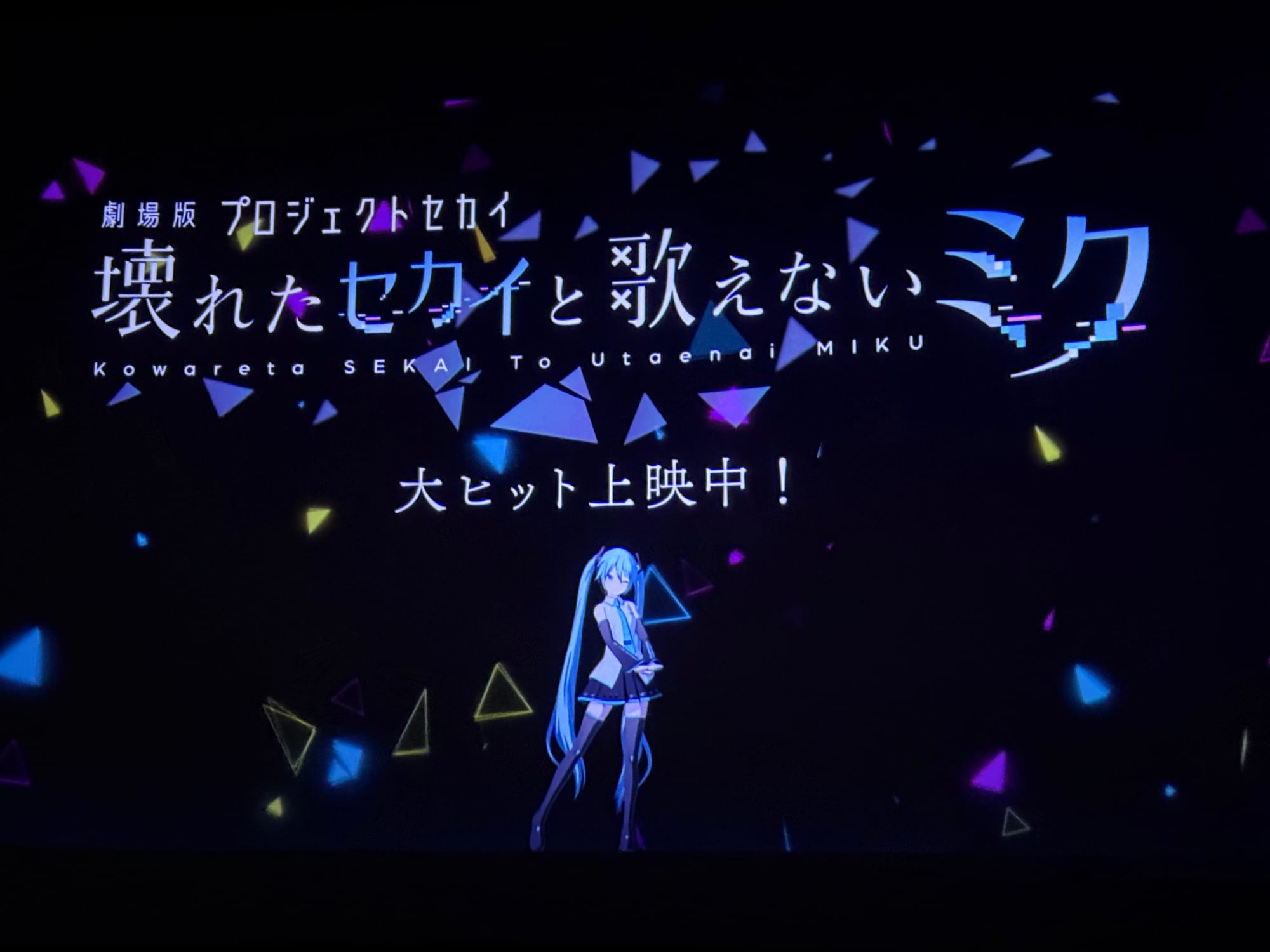
Instead, this film is merely doing exactly what is necessary to please fans, and bring them back on repeat visits to turn a tidy profit. Multiple waves of entry bonuses for screenings are nothing new, but planning out multiple weeks of alternating live performances and talks that would require at least 3x weekly visits to see them all, never mind the random nature of those bonuses, feels less like an earnest attempt to create something new and more a desire to cash in on a demographic.
Considering how creative this community can be, it feels like a disservice.

